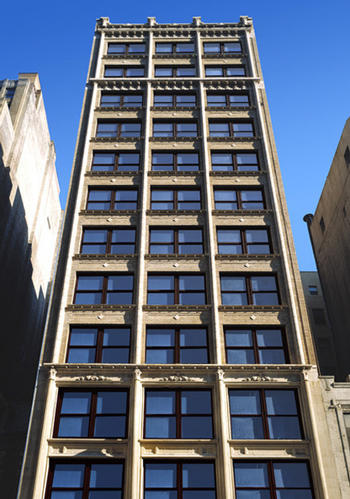You win some, you lose some.
Michael Shah’s Delshah Capital, which made a series of distressed-debt plays in the summer of 2017, saw two of them fall through this week when the New York County Supreme Court dismissed a pair of foreclosure lawsuits against Jack Terzi’s JTRE Holdings.

31 East 28th Street
Delshah acquired mortgage notes on two JTRE retail condos, at 31 East 28th Street and 27 West 72nd Street in Manhattan, at face value for a total of $9.8 million in July 2017. Both mortgages were originated by Signature Bank, and Terzi alleges that the lender and Shah conspired to manufacture a fictitious default.
“Shah wanted the Mortgages in default so that he could impose a punitive default interest rate of 24% and/or put the Property into foreclosure to buy it at a discount,” Terzi said in a counterclaim against Shah. “Accordingly, even though JTRE never missed a single mortgage payment, Signature Bank and Shah evidently colluded to manufacture a default vis-à-vis the long abandoned Cash Collateral Agreement.”
According to the “Cash Collateral Agreement,” JTRE was required to always maintain a minimum balance of $75,000 in an account that was used for loan payments. At one point in the summer of 2017, the balance fell to as low as $356, and Signature Bank sent out a notice of acceleration after judging the mortgages to be in default. Soon after, the bank sold the apparently non-performing mortgages to Delshah.
While Signature argued that it only had to give Terzi 10 days to cure the default, Terzi’s lawyers argued that the cure period was in fact 30 days, and that in any case the bank had back-dated its letters to effectively give him zero days to respond.
The difference between a 10-day and 30-day cure period hinged on whether failing to maintain a minimum balance counted as a default in “payment.” In the end, the court found that it was not, entitling Terzi to a longer period of prior notice.
“This case convincingly illustrates how imperative it is for a borrower’s counsel to carefully review the underlying loan documents to identify the basis of any alleged default,” Darren Oved of Oved & Oved LLP, whose firm represented Terzi in both suits, said in a statement, noting that the difference between victory and defeat ultimately hinged on these minutiae.
Terzi is planning on moving forward with plans on both properties.
According to the lawsuit and public records, Delshah also made preparations to go after a third Terzi property, but did not follow through. On the same day that the entities “31 East 28th Street Note Buyer LLC” and “27 West 72nd Street Note Buyer LLC” were registered with the New York State Department of State, “349 West Broadway Note Buyer LLC” was also registered to the same Staten Island address, but it was never used. The retail co-op unit at 349 West Broadway also had a mortgage from Signature Bank at the time.
For his part, Delshah said the play for the Terzi properties was a risk they underwrote for when they acquired the notes. “But we will meet our desired return over the long term given that these notes have matured,” a representative for the firm said.
The court declined to take a position on whether Delshah and Signature had in fact colluded. “The Court is focused on the clear and obvious terms of the mortgage and the Cash Collateral Account,” Wednesday’s decisions stated. “The motives for the default are irrelevant for the purposes of this motion.”
Meanwhile, some of Delshah’s other distressed-debt plays from the same time period have already paid off.
After a dramatic sequence of events in late 2017, Delshah managed to take full control of the 11-unit building at 97 2nd Avenue in the East Village, formerly owned by Raphael Toledano. During the dispute, Toledano had threatened to “bury” Shah, “literally,” according to documents filed by Shah.
The takeover of the Toledano property was also facilitated by a Signature Bank mortgage, which Delshah picked up for $9.2 million in June 2017.
Delshah likely has yet another distressed-debt win on the way, with an aborted hotel development site at 17 West 24 Street in Nomad set to be sold to a Delshah-controlled entity later this year, according to bankruptcy court filings. Delshah picked up a non-performing loan on that property – originated by Century Capital Partners in this case – for $9 million in June 2017 as well.
According to Tel Aviv Stock Exchange filings and New York City property records, Delshah financed all four distressed-debt buys with a loan from Austin-based Amherst Capital Management, which ultimately totaled about $26.5 million.
Signature and Amherst did not respond to requests for comment.
